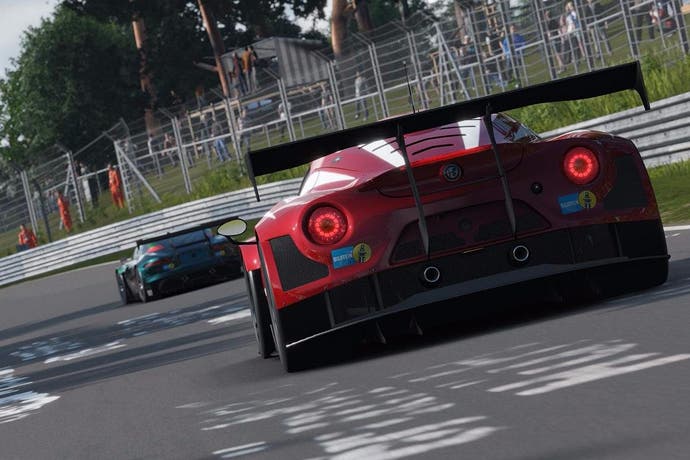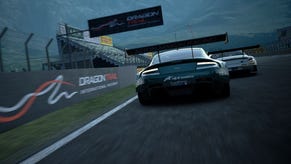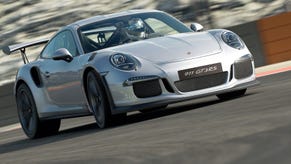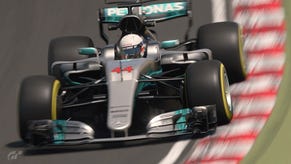Gran Turismo is finally opening its eyes to the wider world of racing games
Polyphony gives its PS4 debut a sporting chance.
Gran Turismo Sport's debut, you might have heard, was far from spectacular. Polyphony's debut on the PlayStation 4 didn't just lack the spectacle you'd hope for from one of Sony's most famous developers; the demo fell flat, the messaging was mixed and the problems that have plagued Gran Turismo for generations had seemingly been left to fester. Series creator Kazunori Yamauchi has always danced to his own tune - probably the eccentric assault of a BRM V16 as it thunders up the hill of his beloved Goodwood - but the disappointing droning engine sounds found in Gran Turismo Sport back then suggested that maybe he'd fallen desperately out of touch.
That was back in May, and since then things have changed. A lot. The negative reaction to Gran Turismo Sport's reveal lit a fire under Polyphony, it seems, who've worked hard to move the game on immeasurably since that shaky start. The latest build on hand at a Sony press event last week - even taking into account the fact it's flattered by being shown on the PlayStation 4 Pro - shows a massive improvement in quality. If this work-rate is kept up until Gran Turismo Sport's eventual launch some time in 2017, it could be on course for one of motorsport's best comebacks since Jenson Button powered from last through to first in the 2011 Canadian Grand Prix.
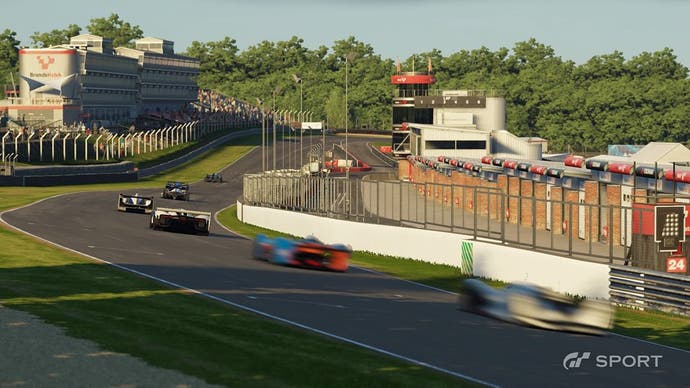
Will Gran Turismo be able to reclaim its place as the best driving game around? I don't think so, but that's not a slur against it. Driving games aren't as popular now as they were in the heyday of Gran Turismo in the PlayStation 2 era, which disguises the fact the genre is going through something of a golden age. Racing fans are spoilt for choice, whether it's the accessibility and diversity of Forza, the breadth and beauty of Project Cars, Assetto Corsa's exquisite handling or the thrillingly authentic action of RaceRoom. Gran Turismo was always going to have its work cut out when the competition it finds itself up against now is so very strong.
What Gran Turismo can do, though, is find its own place among that lot, and what's heartening is how it finally seems open to taking inspiration from elsewhere. Famously Polyphony managed to acquire Forza's previous audio lead last year, and the hire seems to be paying off, the engine notes displaying the personality they've been lacking in Gran Turismo for so many years. Yamauchi himself seems pleased with the progress, at least, frequently requesting the audio to be turned up on the in-game demos during his presentations at the recent PlayStation 4 Pro event.
A more profound influence in Gran Turismo Sport has come from an unlikely but very welcome source. It seems that someone at Polyphony has developed a fondness for iRacing, which at least goes to show they have impeccable taste. For all the contenders that have come to PC since iRacing's launch in 2008, there's still nothing that comes close to it. There are prettier games, ones with better handling models and certainly ones that don't cost almost as much as the real thing to keep up to date with, but when it comes to online racing this simulator remains in a class of its own.
It's heartening, then, to learn that Gran Turismo Sport is set to employ a rating and penalty system that sounds like it's been lifted wholesale from iRacing, just as it it is to discover that it enforces track limits - as popular a subject as ever in real racing circles in 2016 - in a similar way, asking drivers to give up time should they stray too far from the black stuff. Despite a wealth of contenders the console space is screaming out for an online racing game that's rigidly adjudicated and sensibly structured, and if Gran Turismo Sport can come good on its intentions it may well be able to carve a niche out of its own.
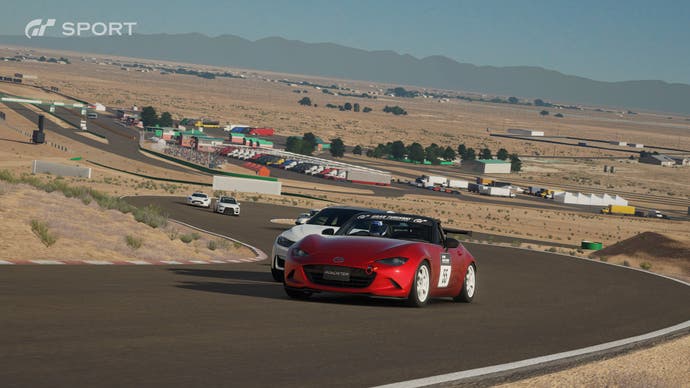
Still, some influences seem less welcome than others and it's a shame that Gran Turismo has fallen in line with other games this generation - the notable exception of Project Cars aside - in doing away with dynamic day and night transitions. More's the pity given the game's wealth of GT machinery, cars typically showcased in endurance events at Nürburgring, Spa-Francorchamps and Bathurst where changing light and conditions are an inherent part of the challenge. It doesn't look like it's something that's about to be rectified any time soon, either. "Linear time changes we won't be doing again," Yamauchi says bluntly when asked about the feature. "We do give a selection of being able to choose times, and we're considering a system when you pit in with the car the time of day might change again."
How about the nuts and bolts of Gran Turismo Sport, and the handling of its cars? Maybe it's a symptom of coming off the back of Assetto Corsa's more communicative rides or maybe it's down to the set-up of the T300RS being used to demo the game (I'm more used to playing at home on a T500RS with the settings ramped up until it pulls my arms off), but the M6 GT3 I chose to take around Brands Hatch felt incredibly light, and there's certainly not the revelatory sensation there was when moving from Gran Turismo 5 to 6.
Hopefully that side of Gran Turismo Sport will come into focus further down the line, but already other parts are falling into place. Polyphony hasn't lost its eccentric edge. Yamauchi is still perfectly happy to spend a presentation telling everyone how his latest game will be the first to truly replicate the Rosso Corsa tone found on a Ferrari - and I wouldn't want it any other way. Look beyond that, though, and you see a developer that's beginning to broaden its worldview, and that's more in line with modern expectations. It might not be able to call itself the greatest driving simulator around any more, but it's got every chance of being the finest Gran Turismo yet.
